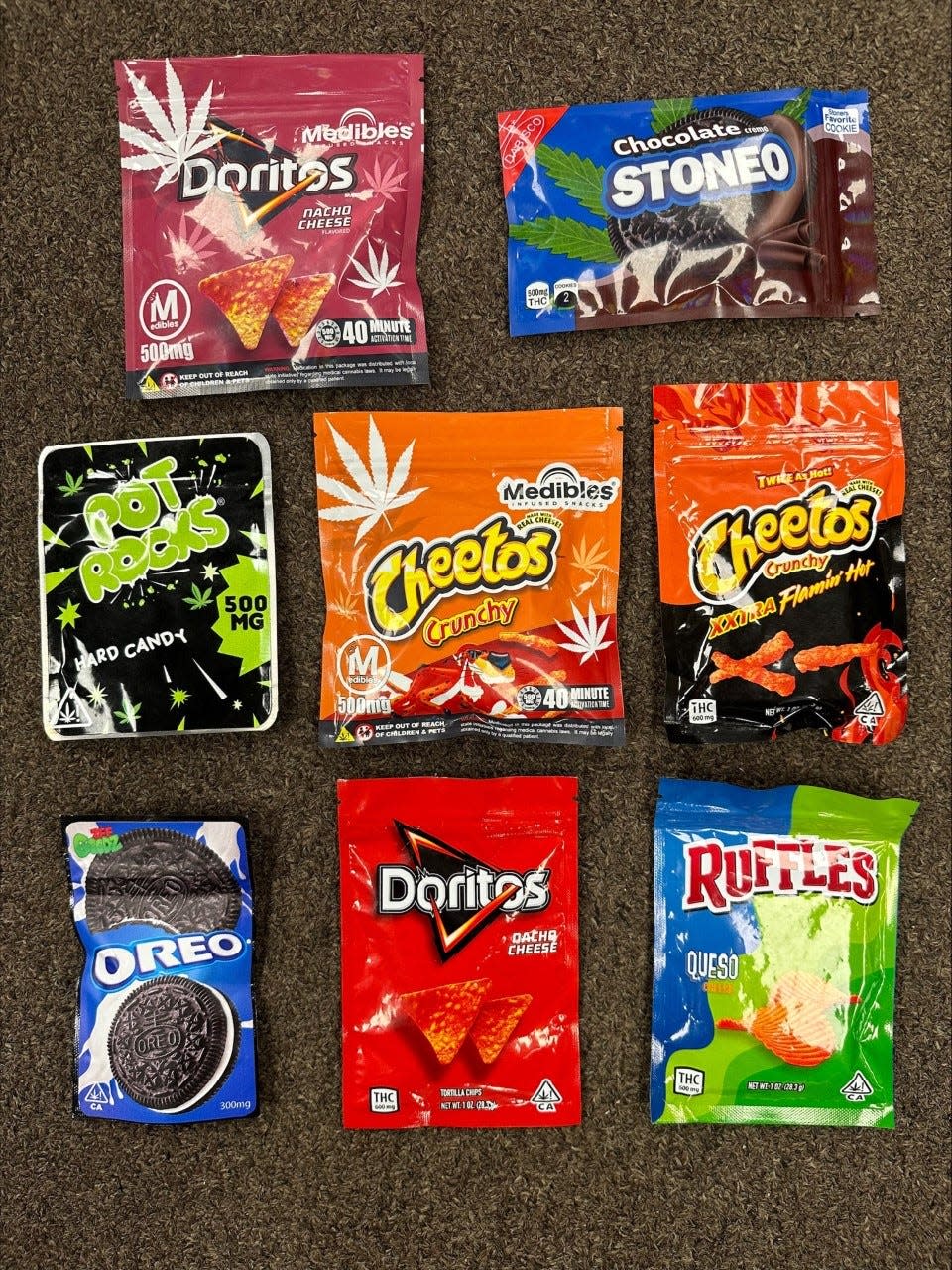Snack, treat, or toxin? Keeping children safe from edible cannabis products | Opinion
Yasmin Soliman, M.D.; Victoria Quinn, D.O.; and Elizabeth Jacobs, M.D., pediatric emergency medicine, Hasbro Children’s Hospital/Brown University.
A babysitter is looking for a snack. She opens the cabinet and takes down a jar of gummy bears. She munches on a handful and then bribes her young charge with a handful to quietly go to bed. But then, the sitter feels odd — clammy, sweaty, disoriented. And then the toddler begins vomiting. The sitter calls her mom, who tells her to call 911. On arrival to the emergency department, the toddler has a seizure. The urine toxicology screen reveals the answer: positive for cannabis.
As of January 2024, 24 states have legalized cannabis for recreational purposes with five more pursuing legalization. Even more have legalized cannabis for medical use. This has led to an unforeseen and alarming consequence: an increase in unintentional ingestion of edible cannabis products (known as “edibles”) by children. At Hasbro Children’s Hospital alone, there has been an over 700% increase in emergency department visits for younger children with unintentional cannabis exposure since the passing of the state law and opening of the first recreational dispensary, with rates continuing to rise.
More: As RI communities consider banning public pot consumption, others say the laws go too far
These ingestions are not only dangerous to children but very preventable. As emergency medicine physicians, we have seen young children brought in by their distraught parents after managing to reach into their family members’ edibles. We must recognize the importance of safeguarding our children from the rising distribution of cannabis-based products that are virtually indistinguishable from regular treats known to children.
Cannabis ingestion can range from vomiting to sleepiness to coma, requiring breathing tubes and admission to pediatric intensive care units. Sadly, there is no antidote for cannabis overdose, so management generally requires extended emergency department visits and hospital admission until THC is cleared.

Previously edibles were thought to only be infused in gummy candies or baked goods such as brownies. However, cannabis-infused edibles now include cookies, hard candies, chips, rope candy, savory foods like beef jerky, and many more. The packaging for these edibles closely resembles that of the original treats, and they also lack the smell or visible smoke of inhaled cannabis. The effects of ingestion would also be delayed compared to inhalation, so both children and adults may continue to inadvertently consume more of the product increasing their risk of overdose and dangerous outcomes.
In states where cannabis has been legalized for recreational purposes, marketing and advertisement of such products must not be targeted towards children. We must advocate for regulations on access and advertisement to youth. Changing the name of the product on the packaging while keeping the same product color and design is not enough to keep children from accidentally ingesting them. A child will not be able to read the labels diligently to determine that the products in the box are not safe to consume.
More: Everything you need to know to buy retail marijuana in Rhode Island
Stricter packaging regulations with clear, child-resistant packaging and warning labels are necessary. Retailers and manufacturers must take responsibility and store edibles in packaging that does not easily appeal to children. Parents should also exercise caution and vigilance to securely secure edibles out of the reach of children just as they would with other potentially harmful medications or household cleaning items.
Let us ensure that the legalization of cannabis does not come at the cost of our children’s safety and well-being. Regardless of the legalization status in every state, we must prioritize the safe distribution of cannabis-infused products as a nation.
With enforcement of strict advertisement and packaging regulations as well as increased parental vigilance, we can keep children safe from the harmful effects of unintentional edible cannabis ingestions.
This article originally appeared on The Providence Journal: We have seen young children brought in by their distraught parents after managing to reach into their family members’ edibles.

